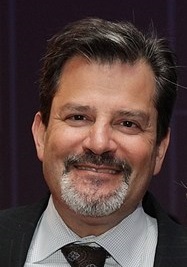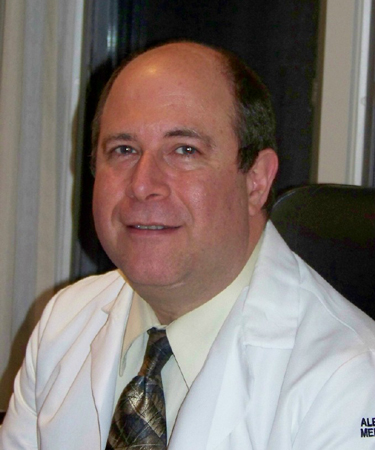Monday March 06, 2023 –
Thursday March 09, 2023
7:30am-12:50pm EST
Event Details
When
Where
Lido Beach Resort
Sarasota, Florida
Event Code
SEMLA-3720230306
Course Topics
Day 1
Practical Approach to the Patient with Potential DVT (Horowitz)
Upon completion of this session, using multiple research trials as well as applying recommendations from the ACCP, AAFP/ACP, and the AHA/ACC, the participant should be able to: GL, COMP
- Obtain an appropriate medical history to better identify those patients at risk.
- More confidently evaluate and assess the patient suspected of having DVT.
- Better manage patients with the confirmed diagnosis of DVT.
Approach to the Management of Chest Pain (Horowitz)
Upon completion of this session, the participant should be able to: GL, COMP
- Evaluate the complaint in the context of history, physical exam, and EKG findings.
- Develop a strategy to use cardiac biomarkers in the evaluation of ACS.
- Use recent research studies and guidelines to develop an approach to the patient with chest pain.
Practical Approach to the Diagnosis and Management of Heart Failure (Horowitz)
Outpatient Anticoagulation Issues, Part 1 (Goldfinger)
Upon completion of this session, the participant should be able to: GL, EBM, COMP
- Manage outpatients on warfarin using current CHEST guidelines and The Joint Commission 2023 National Patient Safety Goals.
- Determine factors leading to alterations in the international normalized ratio (INR).
- Advise patients on the appropriate choice, duration, and intensity of anticoagulation in a variety of clinical scenarios.
- Develop a familiarity with the new oral anticoagulants.
Outpatient Anticoagulation Issues, Part 2 (Goldfinger)
Upon completion of this session, the participant should be able to: EBM, COMP
- Develop an evidence-based approach on perioperative management of antithrombotic and anticoagulant medications.
- Recognize the proper use of IVC filters using evidence-based medicine.
- Develop a practical approach when transitioning patients on and off anticoagulants or switching between anticoagulants.
- Identify appropriate use of anticoagulant and antithrombic medications in combined therapy.
Day 2
Practical Approach to the Patient with Hyperlipidemia (Horowitz)
Upon completion of this session, using multiple research trials as well as the recommendations of the NCEP, the participant should be able to: GL, COMP
- Apply the current NCEP guidelines.
- Develop a practical approach for considering the new medications available.
- Consider the new targets developed for cholesterol end point.
Preoperative Evaluation (Horowitz)
Evaluation of the Patient with Syncope. (Goldfinger)
Upon completion of this session, the participant should be able to: GL, COMP
- Appraise the various etiologies of syncope.
- Use clues in the history and physical as well as simple office testing to risk stratify patients with syncope.
- Develop a plan for appropriate use of additional testing in patients with syncope to include indications for EP testing as per the AHA Syncope Algorithm and the ESC Guidelines.
- Assess the role of lifestyle measures, medication, and more invasive measures to prevent recurrent syncope.
Peripheral Arterial Disease (PAD) – A Primary Care Perspective (Goldfinger)
Upon completion of this session, the participant should be able to: GL, EBM, COMP
- Assess the relationship between PAD and other forms of atherosclerosis.
- Determine which patients are at increased risk for PAD.
- Perform a focused history and physical examination to assess for PAD.
- Determine when to use ancillary testing.
- Develop a plan for managing patients with PAD utilizing evidence-based ACC/AHA and CHEST guidelines for exercise, medications, and revascularization.
Drug Interactions and Side Effects (Goldfinger)
Upon completion of this session, the participant should be able to: GL, EBM, COMP
- Determine the most common mechanisms for drug interactions.
- Identify some of the most frequent culprit drugs such as Warfarin and Acetaminophen, AED’s, NSAIDs, and Statins.
- Counsel patients regarding some of the most frequent side effects seen with commonly used medications.
- Employ The Joint Commission 2023 Ambulatory Care National Patient Safety Goals.
Day 3
Practical Approach to Thyroid Disease: 1. Hypothyroidism/Elevated TSH 2. Patient with a Thyroid Nodule. (Horowitz)
Upon completion of this session, by applying recommendations from the AAFP, AACE, ACP, ATA, USPSTF, IOM, and ACOG, the participant should be able to: GL, COMP
- Appreciate the role of the screening TSH and what to do with the results.
- Develop a reasonable and cost-effective approach to diagnosing the thyroid nodule.
- Discuss the management of hypothyroidism.
Strategies to Address the Issue of Preventable Hospital Readmissions (Horowitz)
Upon completion of this session, the participant should be able to: EBM, COMP
- Identify the factors which contribute to increase risk of readmission.
- Stratify the risk for readmission utilizing evidence-based tools.
- Develop a transition of care strategy to reduce the likelihood of a preventable readmission.
Diagnosis of Primary Headache Syndromes. (Smetana)
Upon completion of this session, the participant should be able to: COMP
- Distinguish among the historical features of migraine, tension-type, and cluster headaches.
- Recognize which historical features best discriminate between migraine and tension-type headaches.
- Apply the triggers for migraine to lifestyle modification.
Treatment of Primary Headache Syndromes. (Smetana)
Upon completion of this session, the participant should be able to: EBM, GL, COMP
- Appreciate the role of abortive therapy for migraine, tension-type, and cluster headaches.
- Recognize the range of options for pharmacologic acute and preventive therapy, as recommended by the AHS 2015 Evidence-Based recommendations for migraine, as well as options for tension-type, and cluster headaches.
- Develop non-pharmacologic treatment strategies for migraine as per the most recent Cochrane Systematic Review.
Rational Management of Depression in Primary Care. (Smetana)
Upon completion of this session, the participant should be able to: GL, COMP
- Employ an appropriate initial approach to use of the updated USPSTF Guidelines for screening of the patient with depression.
- Determine the proper role of second generation antidepressants as per the ACP Guideline.
- Assess the effectiveness of augmentation and switching strategies.
- Specify the most common side effects, as per the 2016 ACP Guidelines, of commonly used antidepressants.
Day 4
Practical Approach to the Patient with Diabetes. (Horowitz)
Upon completion of this session, using multiple research trials as well as recommendations from the ADA, EASN, AGA, CDA, AACE, ACP, and the AAFP, the participant should be able to: GL, COMP
- Consider this primer on management.
- Distinguish the patient who is likely to go on to develop complications and appreciate the potential long-term course.
- Apply the current guidelines for therapy and access the anticipated outcome goals.
Practical Approach to the Outpatient with Dementia. (Horowitz)
Upon completion of this session, while applying recommendations from the AAN and the USPSTF, the participant should be able to: GL, COMP
- Formulate a practical approach to screening for dementia.
- Discuss medication management to include polypharmacy, drug-drug interactions, as well as new drugs and their potential efficacy and side effects.
- Develop a long-term follow-up and referral process that considers cost-effective and resource management.
Non-Surgical Approaches to the Patient with Obesity. (Horowitz)
Upon completion of these sessions, using multiple research trials as well as applying recommendations from the AGA, NIH – NHLBI, ACP, AHA, ASBS, and ACS, the participant should be able to: GL, COMP
- Review the current popular diets available and marketed to your patients.
- Take into consideration unique needs of the obese patient in order to create a comprehensive approach to the treatment of obesity.
- Explain the basic physiology of obesity.
- Manage the medications available for the treatment of obesity.
New Drugs for the Primary Care Physician: What You Need to Know. (Smetana)
Upon completion of this session, the participant should be able to: COMP
- Survey important advances in pharmacotherapy that pertain to primary care practice.
- Discuss the efficacy and list the side effects for each drug.
- Differentiate key new drugs with previously available medications for similar indications.
Hypertension: Recent Trials and Rational Therapy. (Smetana)
Upon completion of this session, the participant should be able to: GL, COMP
- Appreciate that all antihypertensive medications do not equally reduce cardiovascular risk.
- Apply the current JNC guidelines to clinical care of hypertensive patients.
- Recognize compelling indications for selection of initial antihypertensive therapy.
- Identify which drugs most effectively reduce the risk of cardiovascular disease.
Hotel Reservations
Hotel Reservation Link
To arrange your stay, please use the above “Hotel Reservation Link.” The special room rate will be available on a first come first serve basis until the group block is sold-out.
-
- Register by February 5, 2023 to take advantage of preferred rates.
- Save $9 on reduced resort fee. Reduced from $29 to $20 per room, per day.
- Free self-parking for AMS guests.
- Automatic raffle entry with registration.
Rent a Car with Enterprise or National:
Enterprise/National
To book your CME conference car rental and to receive special rates exclusively for AMS attendees, you may call or book online with our contracted companies.
About the Venue
Lido Beach Resort
Sarasota, Florida
Nestled on a private white sand beach on Florida’s Gulf Coast, Lido Beach Resort offers a serene escape with picturesque views, two heated pools, and resort amenities perfect for romantic getaways, family vacations, and peaceful retreats.
Things to Do
Sarasota, Florida
Sarasota offers a truly impressive blend of shopping, cuisine, and attractions. So sail into a breathtaking sunset, golf on lush green fairways, explore St. Armands Circle, or just relax and sink your toes into some of the finest sand in the world.
White sand beaches
21 Zagat-rated restaurants
MLB spring training
Museums, theaters, and festivals
Dozens of golf courses
Immerse Yourself In Sarasota
Let us help with your area attractions and things to do. As one of the top family vacation destinations in America, Sarasota is renowned for its cultural and environmental amenities. Not only are we home to the #2 beach in the United States as voted by TripAdvisor in 2022, but Sarasota is a mecca for patrons of the arts and has the highest concentration of Zagat® rated restaurants in Florida. It’s no wonder Sarasota was ranked one of the Top 100 Best Places to Visit in Florida in 2022 by US News and World Report.
Sarasota offers a truly impressive blend of leisure, shopping, remarkable cuisine and popular attractions. As Florida’s cultural capital, you can’t go wrong with our museums, plays, symphony, or Sarasota’s very own opera house.
So sail into a breathtaking sunset, golf on lush green fairways, explore unspoiled fishing waters or just relax and sink your toes into the finest beach sands in the world.
If you’re not grabbing your sunblock already, keep reading about all that Sarasota has to offer.
Sarasota Beaches
With numerous beaches to choose from, the most notable being Siesta Key Beach with its quartz crystal, powdered sugar white sand. For those who prefer to go shelling, try out Lido Key or take a short drive to Venice Beach to hunt for fossilized shark’s teeth.

Area Attractions
From aquariums to a spring training baseball game and botanical gardens to airboat tours of gators in their natural habitat, there is something for everyone! Make sure you check out the events calendar for annual traditions including our very own Chalk Festival and the Siesta Key Master Sand Sculpture Contest.

Dining
Whether you prefer fine dining, beachfront or lighter fare, Sarasota has the highest concentration of Zagat® rated restaurants in Florida. Our award-winning dining overlooks world-class beaches, and stunning skylines, and fills downtown Sarasota. Many offer outdoor dining that can be enjoyed year-round!

Arts & Culture
The historical John and Mable Ringling Museum of Arts is the state art museum of Florida. These palatial grounds are home to a world-renowned collection of Rubens, the Circus Museum, Ca’d’Zan, Ringling’s Mansion, and Bayfront Gardens. You will also find the historic Asolo Theater on the premises. But that’s not all, Sarasota’s performing arts rival those of much larger cities.

Sports & Outdoor Activities
Voted as 2014’s Best Sport Friendly Vacations Destination by Sports Events Magazine, Sarasota and the surrounding area has over 25 golf courses, a world-class aquatics, and rowing facility, and one of the largest polo clubs in the country! Whether paddle boarding in the Sarasota Bay or running the Legacy Trail, you’re sure to find something that gets your heart racing!

Shopping
Whatever your shopping preferences are, Sarasota has something to suit your needs. Spend the afternoon in historical St. Armand’s Circle, visit the Ellenton Outlet Mall just 20 minutes North or enjoy our newest addition- the high-end shops of University Town Center (more than 100 stores).

Presented By

David Horowitz, MD
Professor of Clinical Medicine, Perelman School of Medicine at the University of Pennsylvania; Associate Chief Medical Officer, University of Pennsylvania Health System; Philadelphia, PA

Gerald Smetana
Professor of Medicine, Harvard Medical School; Senior Physician, Division of General Medicine and Primary Care, Beth Israel Deaconess Medical Center, Boston, MA

Michael Goldfinger
Clinical Assistant Professor, Department of Medicine, Drexel University, College of Medicine, Philadelphia, PA
Accreditation
American Medical Seminars, Inc. designates this live activity for a maximum of 20 AMA PRA Category 1 Credits™. Physicians should claim only the credit commensurate with the extent of their participation in the activity.
Webinar Details
Live Webinar Access Information
Webinars are held via zoom and the Wednesday prior to the conference start date, an email will be sent with the zoom link.
Open For Registration
Cancellation & Refund Policy
We understand that plans may change. Please review our cancellation and transfer options below:
30+ Days Before Conference Start Date
- Refund: Full refund minus a $50 processing fee.
- Transfer: Registrations can be transferred once, at no cost, to another conference within two years. Alternatively, registration may be placed “on hold” for up to 12 months, allowing participants to choose a suitable conference for transfer within that period.
Less Than 30 Days Before Conference Start Date
- Refund: No refunds available.
- Transfer: Registration may be transferred to another conference within 2 years at no cost. Alternatively, registration may be placed “on hold” for up to 12 months, allowing participants to choose a suitable conference for transfer within that period.
Additional Notes
- No-shows are non-refundable and non-transferable.
- If we cancel a conference, you may choose a full refund or transfer to another event.
On-Demand Courses
- All sales are final. No refunds or transfers.
Invitation Letters
If American Medical Seminars issued you an Invitation Letter to attend a CME conference in the United States and you need to cancel your registration, we will only refund 50% your registration fee. This is to cover the cost of your Invitation Letter and processing costs. By registering, you agree to the non refundable portion of the registration.
Disclaimer
In the event that AMS is required to cancel a live conference, registrants will receive a full refund within 7 business days. AMS is not responsible for charges associated with cancelled flights or hotel rooms.
How to Request a Cancellation or Transfer
Requests must be submitted in writing to mail@ams4cme.com or by calling 1-800-267-4263.
Note: By registering, you agree to this policy.


